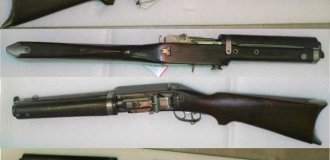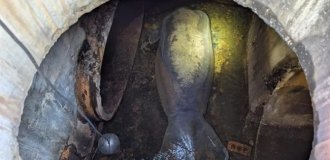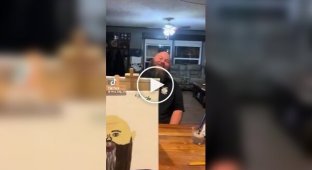Alexis St. Martin: a man with a hole in his stomach who changed medicine (8 photos)
By the beginning of the 19th century, doctors had a good understanding of human anatomy, but how the internal organs of a living person worked remained a mystery. There were no endoscopes or ultrasounds, only stethoscopes and vague guesses. Everything changed in 1822, when military surgeon William Beaumont encountered an incredible case. 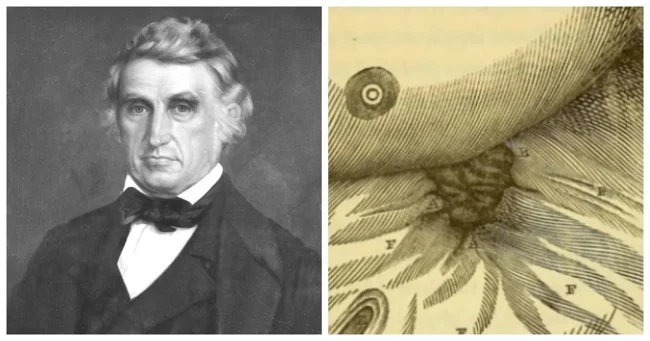
28-year-old Canadian trapper Alexis St. Martin accidentally shot himself in the stomach with a hunting rifle. The shot pierced his left hypochondrium, broke two ribs, damaged a lung and left a hole in his stomach. When Beaumont arrived, he saw pieces of lung and stomach sticking out of the wound, and half-digested food leaking out.
An unexpected "gift" for science 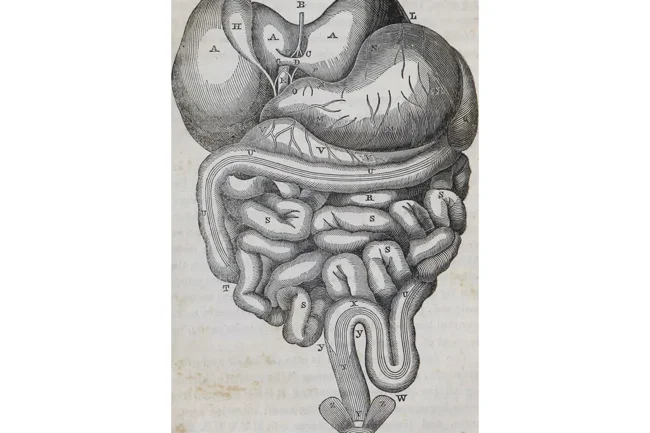
Before St. Martin's living digestive system was studied, doctors knew what it looked like, but they didn't know how it worked.
Beaumont treated the wound, but didn't expect the patient to survive. However, St. Martin recovered, albeit with one "but": the hole in his stomach never completely healed. Food leaked out through it, and the doctor had to feed the patient with nutritional enemas. 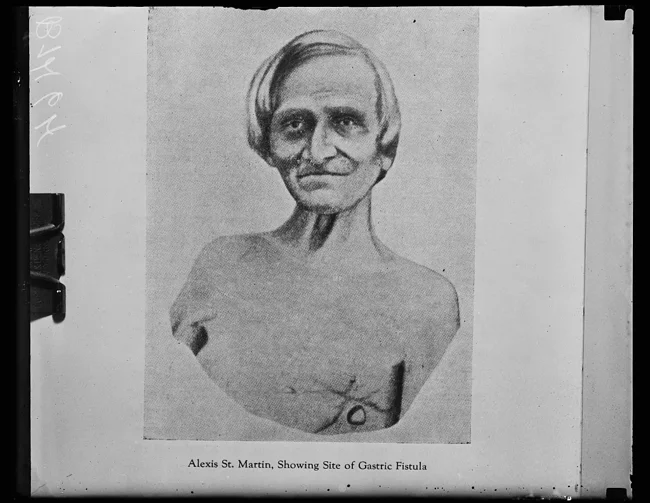
Over time, the wound formed a natural valve — a kind of door through which Beaumont could stick his fingers, spoons, and even pieces of food to study the digestion process in real time.
10 years of experiments: how gastric juice revealed the secrets of the body 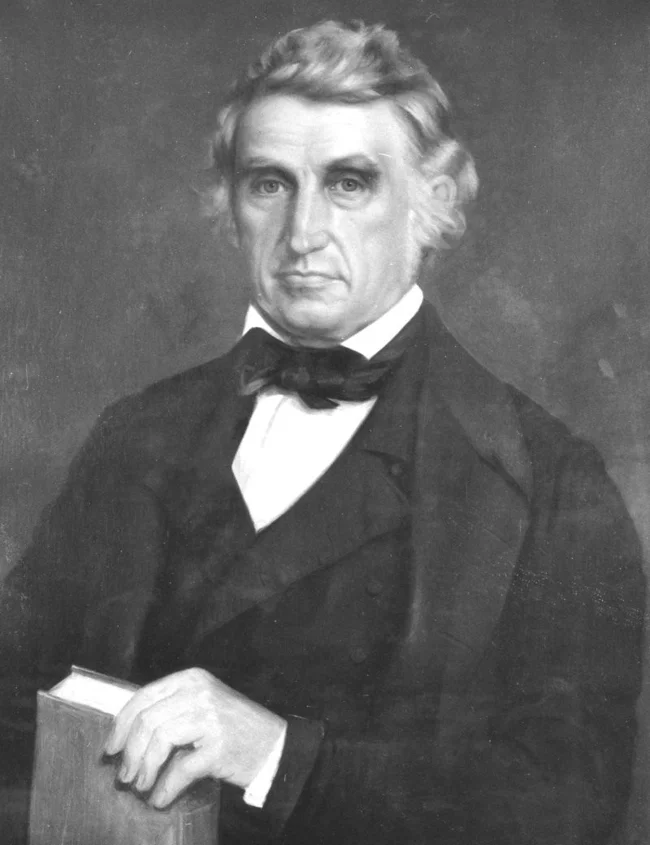
Dr. William Beaumont
Beaumont hired Saint-Martin as a servant and began unprecedented research. He tested how different foods were digested: for example, raw beef disappeared in 5 hours. Beaumont proved that gastric juice contains hydrochloric acid. Before that, it was believed that it was formed only during putrefaction. He also refuted the myth that hunger occurs from the friction of the walls of an empty stomach. 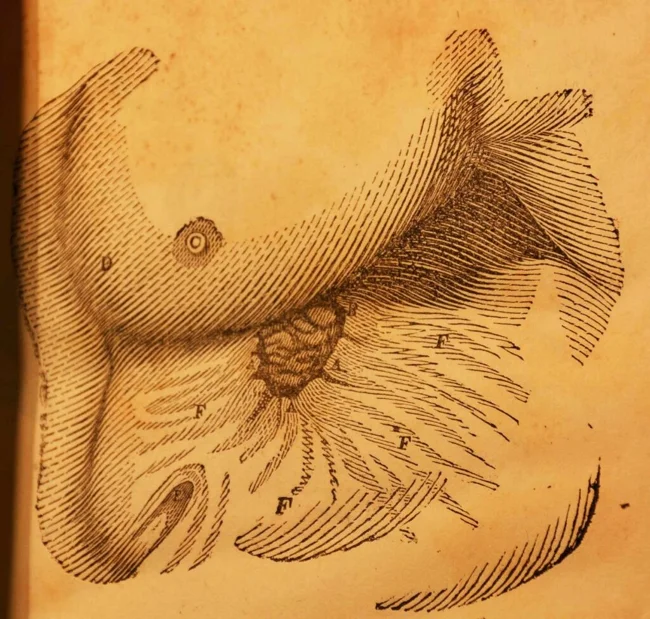
Alexis's Wound
In just 10 years, Beaumont conducted 238 experiments, and in 1833 he published a work that laid the foundation for modern gastroenterology.
The Dark Side of Discovery: An Ethical Question 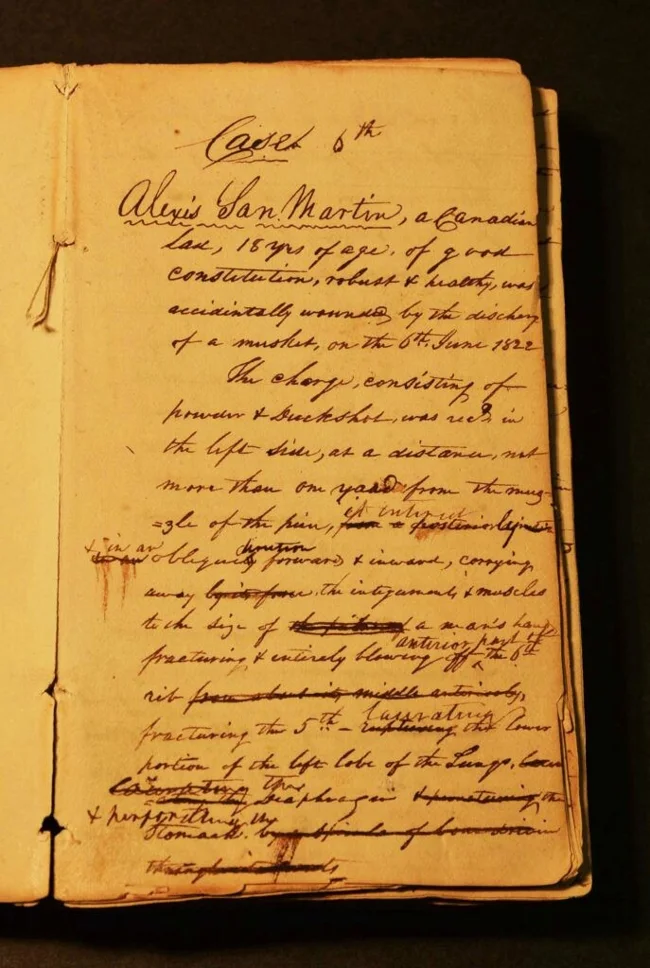
William Beaumont's First Recorded Observations
Naturally, St. Martin suffered from the experiments. He fled to Canada several times, started a family, but poverty brought him back to Beaumont. He even hired detectives to find the fugitive. 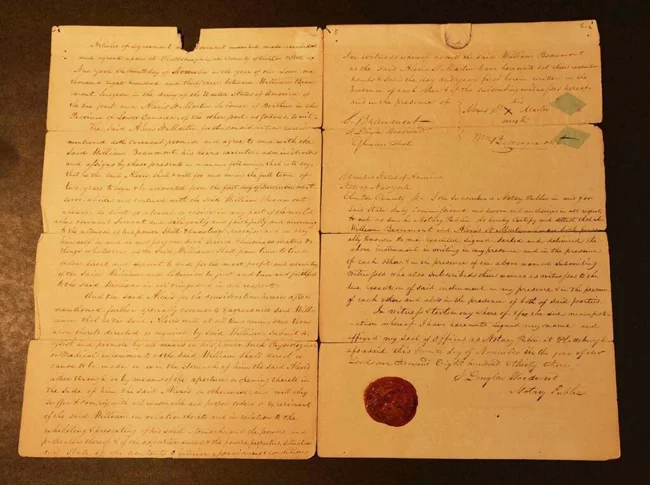
Employment contract between Beaumont and Saint-Martin
Historians of medicine still argue: was Beaumont a brilliant scientist or a cruel exploiter? His biographer notes: "He was not evil - he simply thought like a doctor of his era." 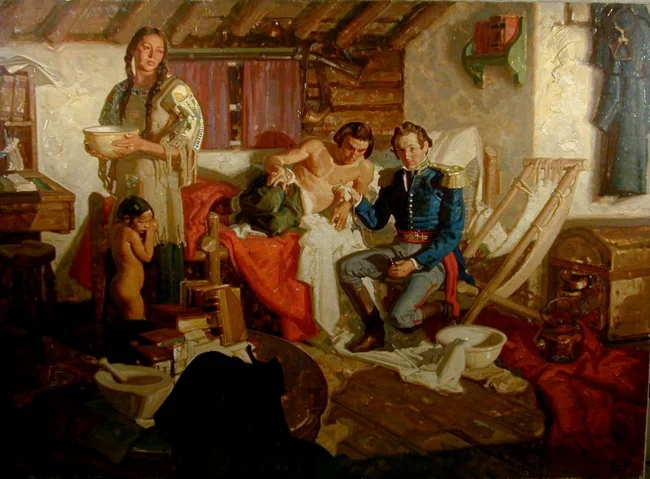
William Beaumont and Alexis St. Martin. Oil on canvas by Dean Cornwell
Beaumont died in 1853, becoming the father of digestive physiology. St. Martin outlived him by 28 years. After his death, his family refused to donate his stomach to science. It remains the most unusual and mysterious "window" into the history of medicine.
This case is both a breakthrough in science and a controversial ethical lesson. Thanks to St. Martin, we know how digestion works, but at what cost?







